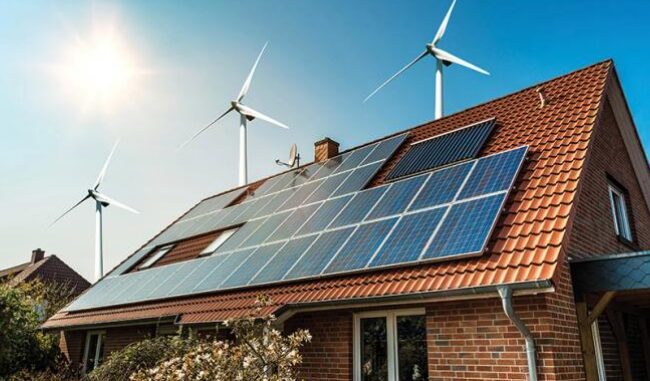
The efficiency of renewable energy technologies varies widely based on the specific technology and application.
Hydropower and wind energy tend to have the highest efficiencies for electricity generation, while solar PV has lower efficiency but is widely used due to its versatility and declining costs.








Geothermal and biomass can be highly efficient, especially when integrated with CHP systems. Ocean energy is still developing and generally has lower efficiencies but offers unique benefits in suitable locations. The choice of technology depends on a balance between efficiency, cost, resource availability, and environmental impact.
The efficiency of renewable energy sources varies depending on the technology used and the specific conditions under which it operates. Here’s an overview of the typical efficiencies of different renewable energy technologies:
Solar Energy
Photovoltaic (PV) Panels:
Efficiency: 15-22%
Factors Affecting Efficiency: Type of PV cells (monocrystalline, polycrystalline, thin-film), temperature, shading, and angle of installation.
Notes: Higher efficiency cells are continuously being developed, with some experimental cells reaching over 25% efficiency.
Solar Thermal Systems:
Efficiency: 30-40%
Factors Affecting Efficiency: Concentration method (parabolic trough, solar tower, dish/engine), fluid used, and ambient temperature.
Notes: Solar thermal plants can achieve higher efficiencies by using combined heat and power (CHP) systems.
Wind Energy
Onshore Wind Turbines:
Efficiency: 35-45%
Factors Affecting Efficiency: Wind speed, turbine design, and location.
Notes: Modern turbines are designed to maximize efficiency across a range of wind conditions.
Offshore Wind Turbines:
Efficiency: 40-50%
Factors Affecting Efficiency: Generally higher and more consistent wind speeds compared to onshore locations.
Notes: Offshore turbines can be more efficient but are also more expensive to install and maintain.
Hydropower
Conventional Dams:
Efficiency: 90%
Factors Affecting Efficiency: Water flow, turbine design, and maintenance.
Notes: Hydropower is one of the most efficient and reliable sources of renewable energy.
Run-of-the-River Systems:
Efficiency: 80-90%
Factors Affecting Efficiency: Consistent river flow and minimal environmental impact.
Pumped Storage:
Efficiency: 70-80%
Factors Affecting Efficiency: Losses during pumping and generation cycles.
Biomass Energy
Direct Combustion:
Efficiency: 20-35% for electricity generation; up to 85% for combined heat and power (CHP) systems.
Factors Affecting Efficiency: Type of biomass, combustion technology, and integration with CHP systems.
Biogas:
Efficiency: 30-40% for electricity generation; up to 90% for CHP systems.
Factors Affecting Efficiency: Quality of feedstock and biogas, digestion process, and generator technology.
Biofuels:
Efficiency: 20-40% for transportation fuels.
Factors Affecting Efficiency: Feedstock type and production process.
Geothermal Energy
Geothermal Power Plants:
Efficiency: 10-20% (electricity generation).
Factors Affecting Efficiency: Temperature of geothermal reservoirs, technology used (dry steam, flash steam, binary cycle).
Geothermal Heat Pumps:
Efficiency: 300-600% (Coefficient of Performance, COP of 3-6).
Factors Affecting Efficiency: Ground temperature stability, heat pump design, and system maintenance.
Ocean Energy
Wave Energy Converters:
Efficiency: 20-40%
Factors Affecting Efficiency: Wave conditions, technology design, and installation location.
Notes: Still in experimental stages with varying efficiency.
Tidal Energy:
Efficiency: 80%
Factors Affecting Efficiency: Tidal range, turbine design, and location.
Notes: Tidal barrages and tidal stream systems offer different efficiency levels.
Ocean Thermal Energy Conversion (OTEC):
Efficiency: 3-5%
Factors Affecting Efficiency: Temperature differential between surface and deep water.
Notes: OTEC is less efficient but offers continuous power generation.


Leave a Reply